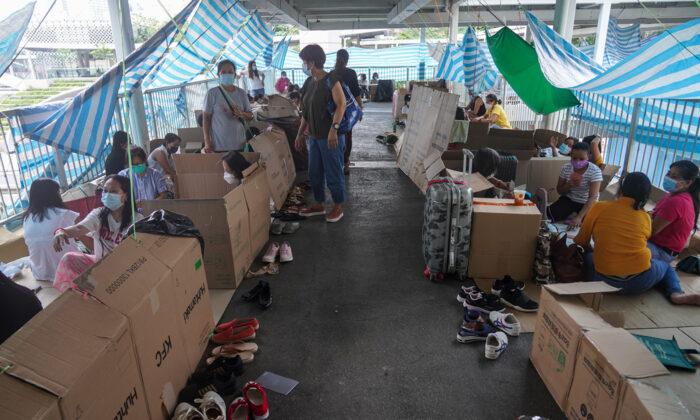On June 15, the U.S. State Department released the 2023 Trafficking in Persons Report, upgrading Hong Kong from the Tier 2 Watch List to Tier 2. The report also mentioned last year’s scams to individuals traveling from Hong Kong to Southeast Asia.
The report categorizes countries or regions around the world into different categories, including “Tier 1,” “Tier 2,” “Tier 2 Watch List,” “Tier 3,” and “Special Cases.” Tier 1 countries have relatively better situations. Hong Kong was upgraded from the Tier 2 Watch List to Tier 2 and is on par with countries such as Albania, Angola, Bangladesh, Cameroon, the Democratic Republic of Congo, Guatemala, Kazakhstan, and Kenya.
The report criticized the Hong Kong government for “not fully meeting the minimum standards for the elimination of trafficking but is making significant efforts to do so“ than the previous reporting period.
The report pointed out that foreign domestic helpers in Hong Kong still “remained at high risk of trafficking” and that the government has not taken “adequate measures to protect them and prevent trafficking.” There are also insufficient efforts to identify trafficking victims who may be arrested and deported by the government for offenses related to entry or prostitution.
In addition, the report criticized inadequate protection for foreign domestic helpers who employers or employment agencies may exploit. For example, employment agencies may charge extra recruitment fees to foreign domestic helpers, and the government’s regulation needs to be revised. Employment agencies may even lend money to foreign domestic helpers.
The report also criticized the Hong Kong government for continuing to publicly deny that human trafficking is a widespread problem in Hong Kong, not convicting any labor traffickers for four consecutive years, and not imposing sufficient sentences on sex trafficking offenders.
The report mentioned that after the imposition of the National Security Law, non-governmental organizations (NGOs) and other civil society organizations have become more cautious in their engagement with the government, including on issues related to human trafficking, because criticizing the government may be considered incitement.
The report recommended that the Hong Kong government strengthen its work in identifying trafficking victims, legislate all forms of trafficking as crimes defined set forth in the 2000 UN TIP Protocol, strengthen investigations and prosecutions of related behaviors, and severely punish those involved.
The Hong Kong government responded, saying it “strongly disapproved of and firmly rejected the report’s unsubstantiated remarks.”
The government claimed in a statement that “TIP is never a prevalent problem in Hong Kong” and pointed out that about 1,200 frontline government personnel received training on anti-human trafficking last year. In approximately 7,600 initial screenings, a record-breaking 32 TIP victims were identified.
The report also mentioned the human trafficking incident in Southeast Asia, where under the pandemic, some human traffickers offered fraudulent recruitment in multiple regions, including Hong Kong, ultimately forcing job seekers to engage in online fraud and subjecting them to abuse such as confiscating their documents, restricting their freedom, communication, and food, physical assault and even electric shocks. There were even reports of victims being killed.
According to a document submitted by the Hong Kong government to the Legislative Council at the end of November 2022, from January to Nov. 28, 2022, the Immigration Department received a total of 46 cases of assistance from Hong Kong people regarding work scams in Southeast Asian countries, of which 42 Hong Kong people have been confirmed safe, and 30 have returned safely to Hong Kong with the assistance of overseas Hong Kong residents’ groups coordinated by the Immigration Department.
In addition, China maintained its “Tier 3” status in 2023, on par with Afghanistan, Belarus, Myanmar, Cambodia, Iran, North Korea, Macau, Russia, and South Sudan. The report criticized the Chinese government for not making significant efforts on this issue and pointed out that there are government policies or models of forced labor in mainland China, including continuing to arbitrarily detain ethnic minorities such as Uyghurs under the guise of “vocational training” and “deradicalization” in Xinjiang.




